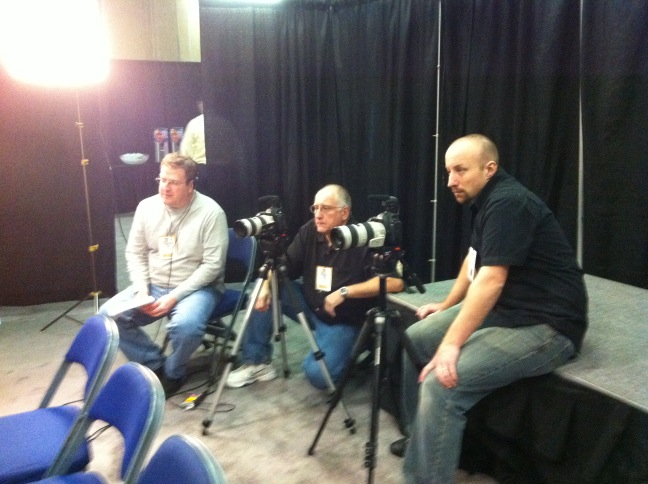Producing Theme-Driven Online College Sports Shows
For Altair and humanstory, the name of the game in college sports web shows is storytelling, and their theme-driven style is getting them lucrative gigs with top college programs.
With the University of Richmond project (shown in the first clip included in this article), initially, the university's public relations saw Gaff's work and invited him to come and shoot the game, but then turn the footage over to the school's video staff to edit. But Gaff insisted on doing the entire project, shoot to edit to delivery, because the essence of the work comprises all of those factors. The school was not just surprised but impressed to be working with someone for whom combining all those tasks and skills is done as a matter of course-another unique advantage that producers with wedding and event backgrounds often bring to the table. What's more, he pitched them a more cohesive story than they may have had in mind initially, focusing on Justin Harper, a player born and raised in the Richmond, and including interviews with his parents. The idea was to create something that would show potential recruits things they couldn't see on ESPN—not just the game, "but the community around it."
"It was interesting dealing with the CAA bigwigs at the beginning," Montgomery adds. "They were excited to have us there but, initially, they didn't really get what we were doing. As the days started to unfold, they started to understand that we weren't there just to get the dunks. This one guy started to come up to us and tell us what was about to happen, like a key player fouling out, and say, ‘Get this, get that.' It's all about educating people that there's a difference between covering an event and getting the richness of a story."
This decidedly non-bread and butter approach to shooting sports events and building shows around them is that it could well become the bread-and-butter revenue-generators of their businesses. Gaff says, "I do a lot of postproduction work in education. I work through an agency that specializes in education and gets lots of work for colleges and private schools, and I love that. I have an agent who has represented me for the last 5 years, with the power to promote and push different reels." She says she can send clips from the portfolio they're building all over the country and get them hooked up with other institutions and athletic conferences. Meanwhile, they're showing their work closer to home, doing more pieces for the CAA and CAA members such as Hofstra, and trying to make inroads into the Atlantic Coast Conference with it's higher-profile schools mostly concentrated in Virginia and North Carolina.

Left to right: Strimple, Montgomery, Gaff
Strimple sees a great freedom in coming at sports events from this perspective and shooting these sorts of productions. "Wedding video is sort of the wild west, in that there aren't many rules to how you can shoot an event, and we're approaching sports events the same way." He recounts a conversation with a Comcast cameraman he met at the CAA tournament who saw it the same way. "That's what I want to do," the Comcast shooter said. "I've got to shoot the game. I want to shoot the stories. But I can't. I've got to shoot what they want me to shoot."
But for those of us working in independent studios, there are different kinds of stories we can tell and sell. The success of Strimple, Montgomery, and Gaff suggests that there are exciting opportunities for shooting sports in new and different ways that go well beyond the game itself if we stop following the ball and start following our instincts for storytelling.
Stephen Nathans-Kelly (stephen.nathans at infotoday.com) is editor of Streaming Media Producer.
Related Articles
This article will introduce you to many of the areas that you will need to be versed in to assure safe and proficient operation of your aerial camera platform. Learn what you need to know before you fly, and fly safe!
SPARC's LIVE ART combines two brilliant and ambitious ideas: to create "a 20-week inclusive performing arts educational experience for children with and without developmental disabilities and hearing impairment," culminating "with these students performing on stage alongside some of Virginia's best professional musicians"; and to bring in a skeleton film crew to document not just the event itself, but the entire 5-month teaching, development, and rehearsal process in a documentary that is now being crowd-funded to completion.